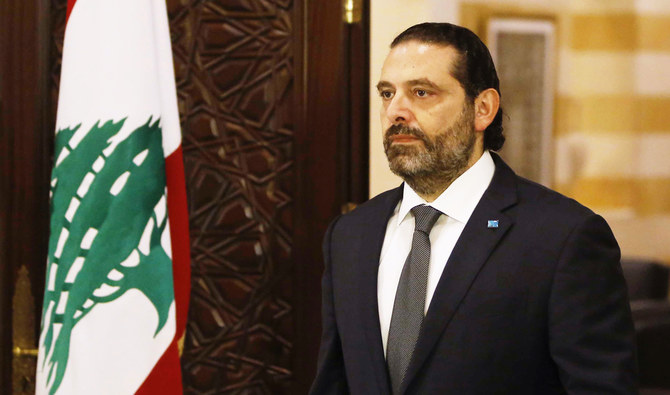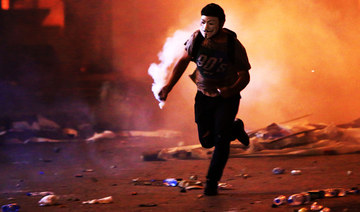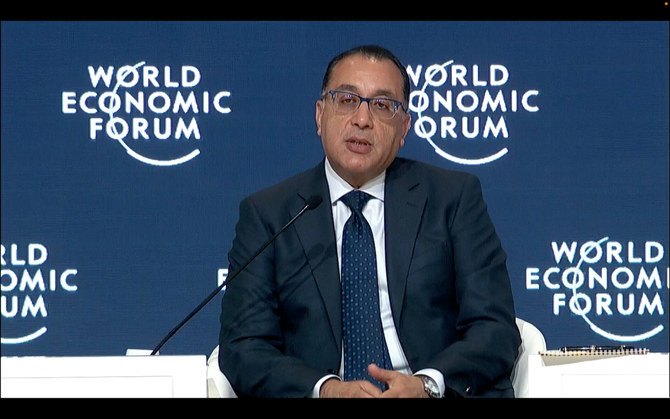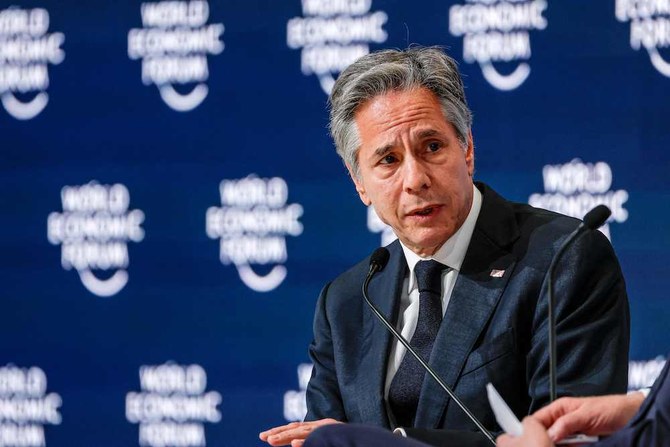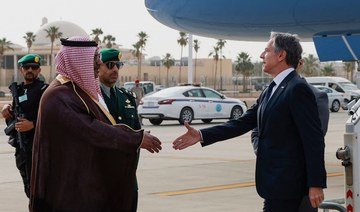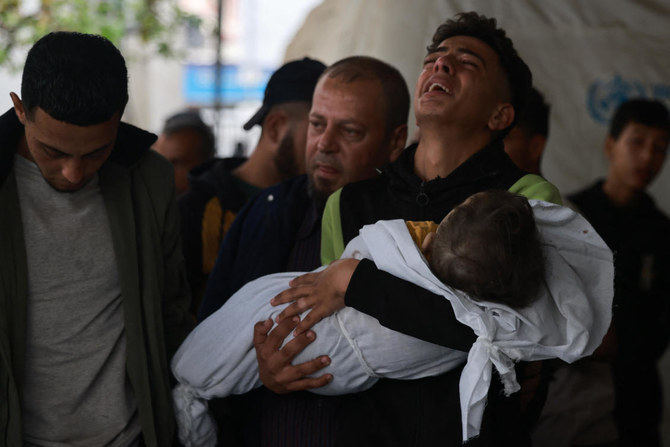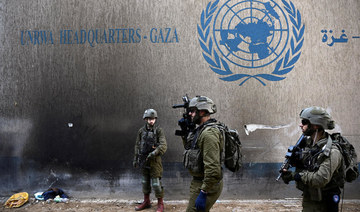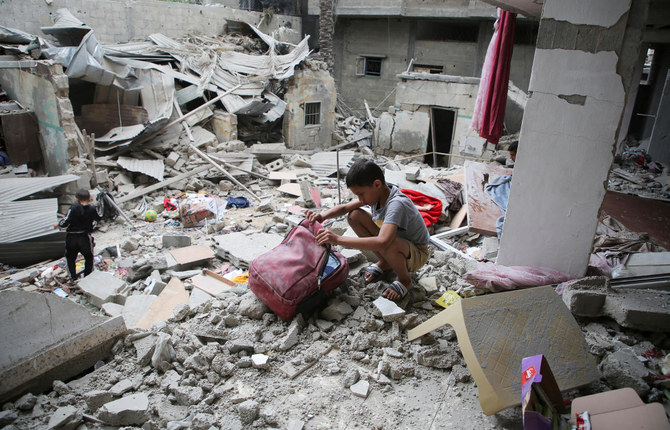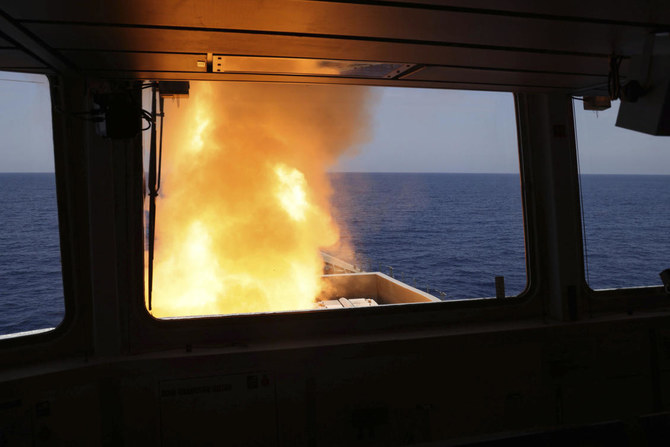BEIRUT: Lebanon’s Prime Minister Saad Hariri on Thursday set a 72-hour deadline for his government to find “convincing” solutions to the rapidly worsening economic crisis.
It came as nationwide protests against the country’s ruling political class continued to escalate.
In an address to the nation, with hundreds of protesters outside his office, he blamed politicians in his national unity government, which includes Iran-backed Hezbollah and rival political parties, for blocking economic reforms.
“I feel the people’s pain and I know that my country is going through an unprecedented difficult time,” he said in a televised address on Friday.
POLL: Will the 72-hour period announced by Prime Minister Saad Hariri be enough to solve the crisis in Lebanon?https://t.co/XTDAMirEio
— Arab News (@arabnews) October 19, 2019
“I have been searching in vain for solutions for three years. We agreed on reforms with partners in the government and I took them to the international community...and they committed $11 billion. But when it was time for implementing the reforms, all kinds of obstacles were put in my way.”
Hariri appeared to suggest he would resign if his government fails to meet his 72-hour deadline for “clear, decisive and final” decisions but stopped short of explicitly stating it.
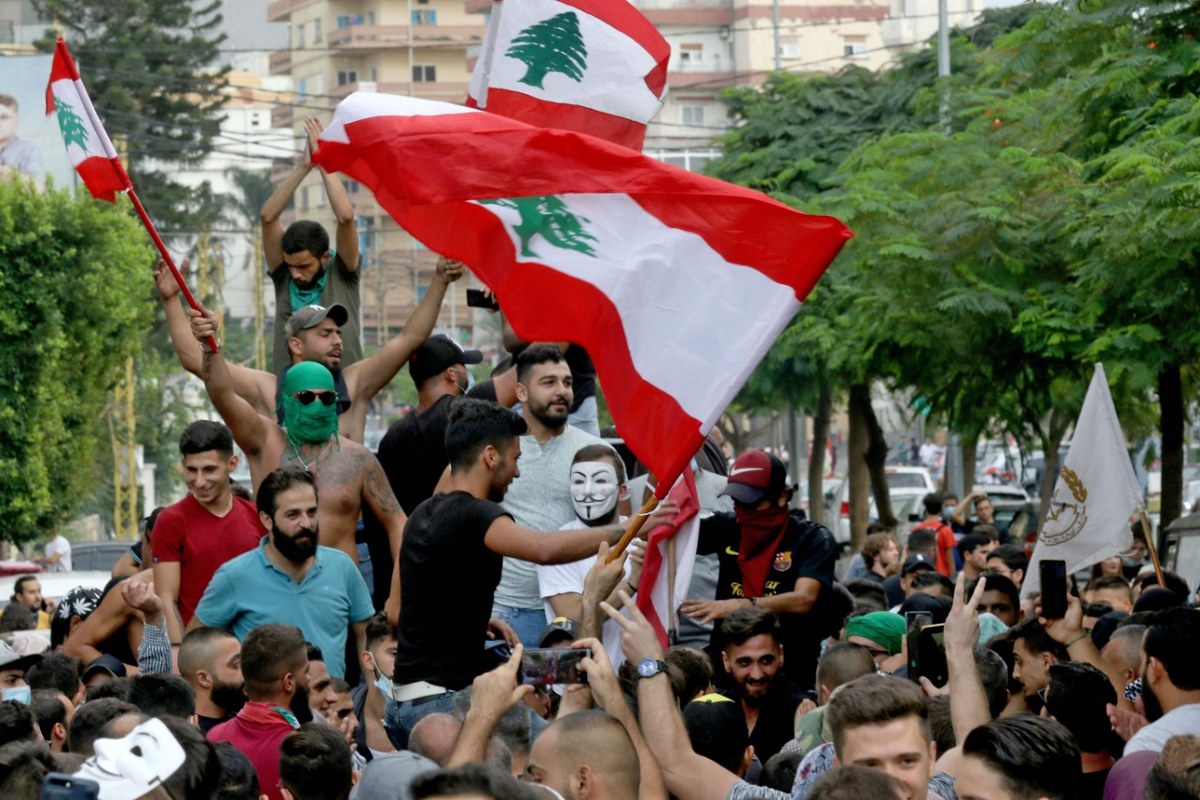
Protesters march along a major thoroughfare in Beirut on Friday. (Supplied photo)
The protests are the largest Lebanon has seen since 2015 and could further destabilize a country with an economy that has one of the highest debt loads in the world and is on the verge of collapse.
Protesters poured through villages and towns as well as the capital Beirut for a second day. No political leader, Muslim or Christian, was spared their wrath.
Their chants called for leaders including Hariri, President Michel Aoun, and Parliament Speaker Nabih Berri to step down.
The mood was a mixture of rage, defiance and hope.
As night fell, crowds waving Lebanese flags marched through the streets as patriotic music blared from loudspeakers. They shouted: "Our demands are one, our objective is one: the people want the downfall of the regime."
Some protesters fainted as security forces fired tear gas. The Red Cross said its teams had treated 160 people wounded in protests since Thursday evening.
"You should be protecting us. Shame on you," a young man yelled as he covered his face against the choking fumes.
Lebanon's internal security apparatus said 52 police were injured on Friday and its forces arrested 70 people.
Some protesters, including men in black hoods, blocked roads, set tyres on fire and used iron bars to smash storefronts in Beirut's posh downtown district.
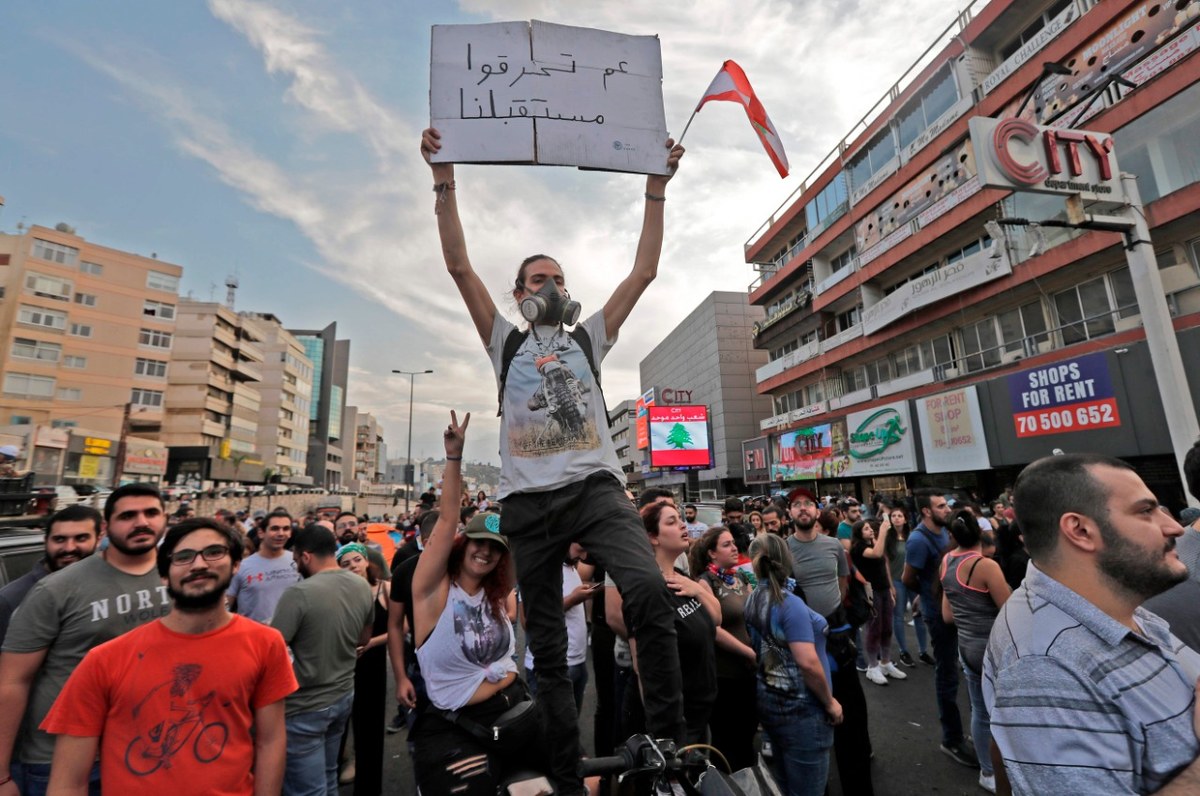
Protesters gather along a busy road in central Beirut on Friday. (Supplied)
As fires blazed, some streets in the capital looked like a battlefield, strewn with rubber bullets, smashed up cars, broken glass and torn billboards. Firefighters struggled late into the night to douse the flames.
Some protesters marched on the presidential palace chanting “Revolution.”
With demonstrators crowding around Aoun's palace in Baabda, the United Nations urged all sides to refrain from actions that could lead to more tensions and violence.
The protests, triggered in part by a proposed $6 monthly tax on WhatsApp internet telephone calls, united people of all religious and political backgrounds and were largely peaceful. Many said they would remain on the streets until the government resigned.
They denounced Lebanon’s political leaders, including President Michel Aoun and his son-in-law, Foreign Minister Gebran Bassil, blaming them for decades of systemic corruption they say has pillaged the country’s resources.
“We are here today to ask for our rights. The country is corrupt, the garbage is all over the streets and we are fed up with all this,” said Loris Obeid, a protester in Beirut. “We are here for the future of our kids. There’s no future for us, no jobs at all and this is not acceptable anymore.”
Saudi Arabia, Kuwait and the United Arab Emirates warned their citizens against travelling to Lebanon. Bahrain told its nationals to leave at once.
The Saudi Embassy in Lebanon advised its citizens in Lebanon to be cautious and avoid conflict zones, and to contact the embassy to arrange to leave the country as soon as possible.
READ MORE: Saudi Arabia, other Middle East countries warn citizens after protests erupt in Lebanon
Lebanon, which in 1990 emerged devastated from a 15-year civil war, maintains a complicated political system balancing the influence of Christians, Sunni and Shia Muslims and other religious groups.
The current government has backing from across the political spectrum but faces financial woes including a ballooning deficit.
Public anger surged after parliament passed an austerity budget in July, and on Thursday it flowed into the streets over plans to introduce a $0.20 tax on calls via messaging apps, widely used in Lebanon.
The government scrapped the proposal within hours, but demonstrations carried on into the night.
Security forces finally dispersed them shortly before dawn, firing volleys of tear gas and rubber bullets after attempts to storm government headquarters.
So far at least 23 protesters have been injured, according to the Red Cross.
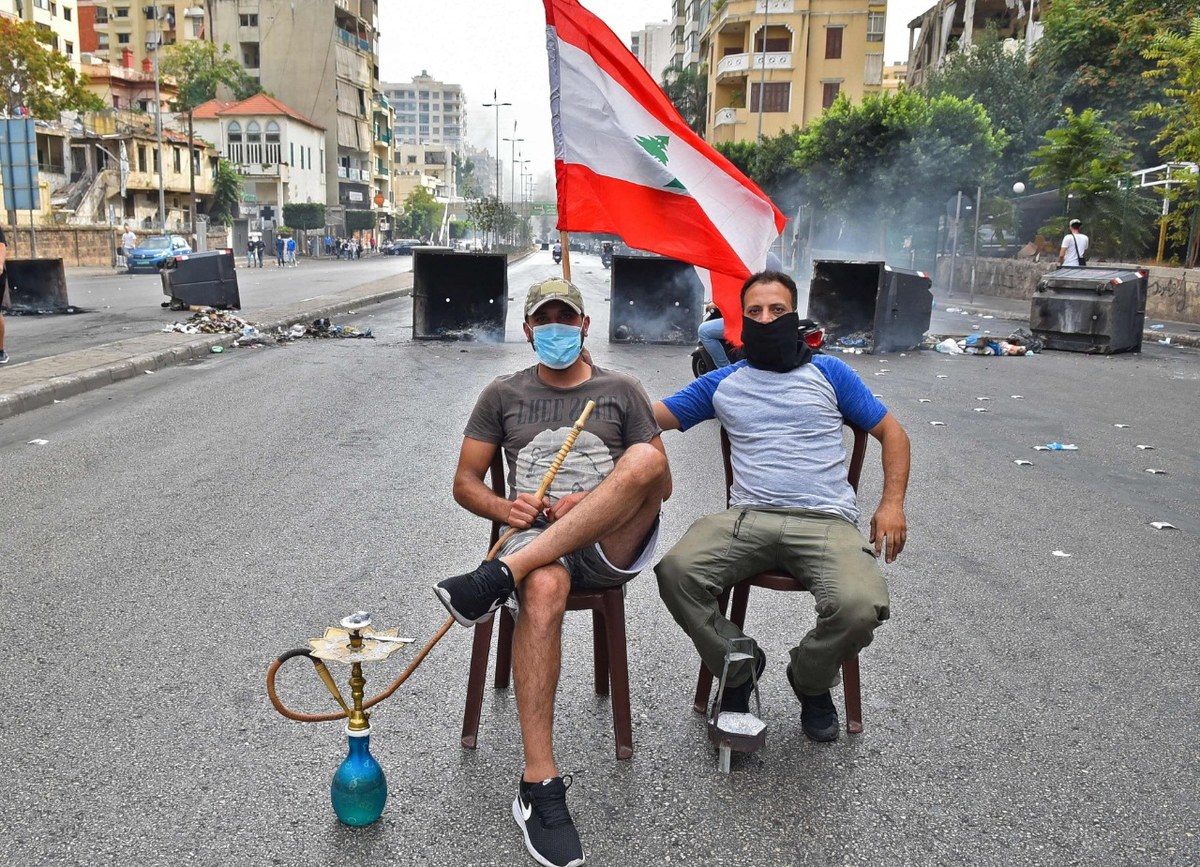
Two protesters man a protest line in central Beirut on Friday. (Supplied)
Banks, state institutions, schools and universities were closed Friday as the rallies spread throughout the country.
Reflecting the scale of public anger, rare demonstrations were reported in neighbourhoods dominated by powerful Shiite movement Hezbollah, not used to opposition in its own bastions.
South of Beirut, travellers trying to reach the airport had to leave their luggage behind, hitching rides on scooters and clambering over roadblocks.
Protesters in various locations burnt or trampled posters of Hariri, Speaker Nabih Berri and President Michel Aoun.
Sami Nader, director of the Levant Institute for Strategic Affairs, said the protests were "totally spontaneous" and appeared to target the entire political class.
"The protests are a result of a piling up of grievances, resulting mainly from government mismanagement," he said.
They are the largest demonstrations since a 2015 refuse collection crisis sparked widespread anti-government protests.
Lebanon suffers from constant electricity shortages and poor internet.
"I want the streets to be lit. I don't want to hear any more generators," said Dima Abu Hassan, 42. "Start there -- at least some infrastructure."
The government has also faced heavy criticism over its response to forest fires earlier this month.
In a country with one of the world's highest debt burdens, the government is weighing a raft of belt-tightening measures aimed at shoring up finances and securing $11 billion in aid pledged by international donors last year.
It is expected to announce a series of new taxes as part of next year's budget, currently being drawn up by ministers.
Growth has plummeted in recent years, with political deadlock, compounded by the impact of eight years of war in neighbouring Syria.
On Thursday the International Monetary Fund forecast "a continuation of weak growth in 2019".
Lebanon's public debt stands at around $86 billion — more than 150 percent of gross domestic product — according to the finance ministry.
(With Reuters and AFP)




